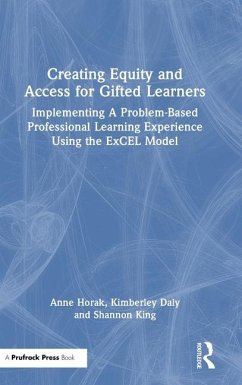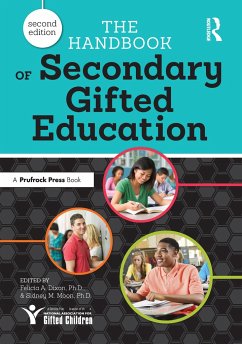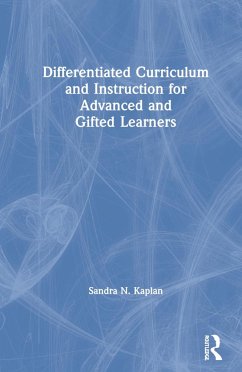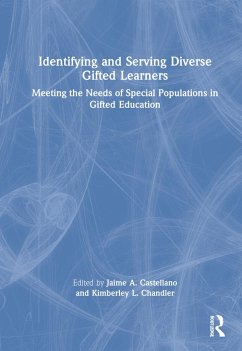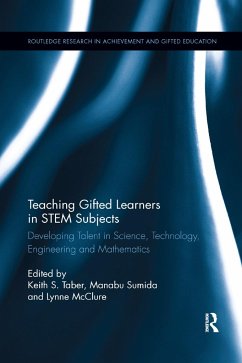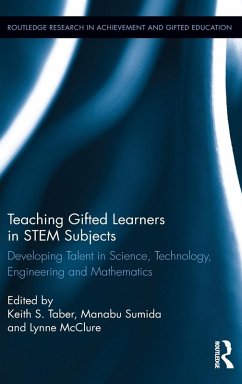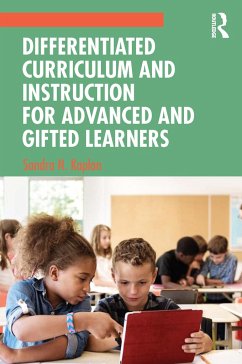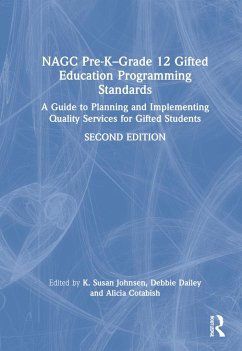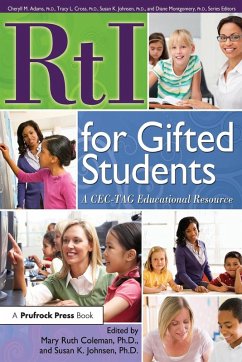
Handbook on Assessments for Gifted Learners
Identification, Learning Progress, and Evaluation
Herausgeber: Johnsen, Susan K.; Vantassel-Baska, Joyce
Versandkostenfrei!
Versandfertig in 1-2 Wochen
166,99 €
inkl. MwSt.
Weitere Ausgaben:

PAYBACK Punkte
83 °P sammeln!
This essential handbook is a comprehensive and systematic examination of the assessment of gifted and advanced students and their programs, and a must-have resource for coordinators and directors at state and local levels. Handbook on Assessments for Gifted Learners explores issues associated with building an effective identification system, clarifies and interprets the need for targeted learning progress assessments for gifted learners, and discusses program evaluation, assessments, and processes used to gauge programs' success. Engaging chapters written by both academic and practitioner expe...
This essential handbook is a comprehensive and systematic examination of the assessment of gifted and advanced students and their programs, and a must-have resource for coordinators and directors at state and local levels. Handbook on Assessments for Gifted Learners explores issues associated with building an effective identification system, clarifies and interprets the need for targeted learning progress assessments for gifted learners, and discusses program evaluation, assessments, and processes used to gauge programs' success. Engaging chapters written by both academic and practitioner experts provide research-based, practical ideas for identifying and measuring the progress of gifted and advanced learners. Readers will benefit from informed recommendations stemming from current research conducted specifically for this text.




